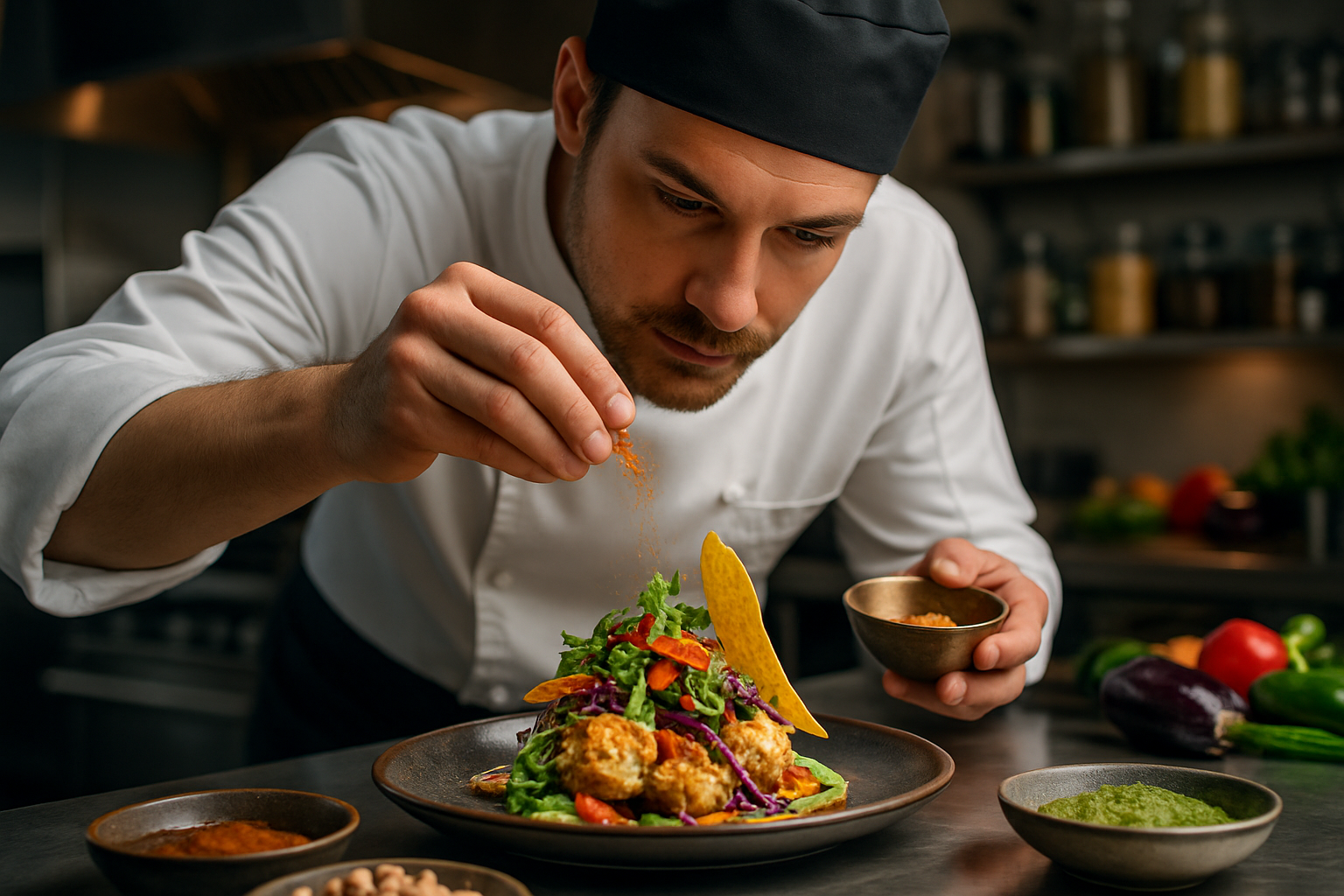Culinary Alchemy: Transforming Humble Ingredients into Gourmet Delights
Elevate your kitchen game with the art of culinary alchemy. Discover how to turn everyday ingredients into extraordinary dishes that will impress even the most discerning palates. From simple pantry staples to forgotten produce, this guide will unlock the secrets to creating gourmet meals without breaking the bank.

Pantry Staples Reimagined
Look no further than your own pantry for the building blocks of culinary magic. Canned beans, often relegated to side dishes, can be transformed into luxurious dips or creamy soups. Try blending white beans with roasted garlic, lemon juice, and herbs for a velvety spread that rivals any store-bought hummus. Instant ramen, a college staple, can be elevated into a gourmet meal with the addition of fresh vegetables, a soft-boiled egg, and a drizzle of chili oil. Even humble canned tomatoes can be the base for a rich, restaurant-quality pasta sauce when simmered with aromatics and finished with a splash of cream. The key is to think of these staples not as finished products, but as versatile ingredients with unlimited potential.
Vegetable Makeovers
Vegetables are often underappreciated, but with the right techniques, they can become the star of any meal. Take cauliflower, for instance. Roasting it whole with spices creates a stunning centerpiece that’s both visually impressive and delicious. Or transform it into a low-carb alternative to rice or pizza crust for a trendy twist on classic dishes. Carrots, when slow-roasted with honey and thyme, develop a caramelized sweetness that elevates them from simple side to sophisticated dish. Even the humble potato can be turned into a work of art – try hasselback potatoes, where thin slices are cut into the potato before roasting, creating a fan of crispy edges and a creamy interior. The key to vegetable alchemy is to experiment with different cooking methods and bold flavors to bring out their natural sweetness and complexity.
The Art of Flavor Layering
One of the secrets to transforming simple ingredients into gourmet dishes is mastering the art of flavor layering. This technique involves building complex flavor profiles by combining different tastes and textures. Start with a base flavor, such as caramelized onions, and build upon it with complementary ingredients like roasted garlic, fresh herbs, and a splash of acid from lemon juice or vinegar. Consider using umami-rich ingredients like miso paste, soy sauce, or nutritional yeast to add depth to vegetarian dishes. Experiment with contrasting textures by adding crunchy elements like toasted nuts or crispy fried shallots to creamy soups or salads. By thoughtfully layering flavors and textures, you can transform even the simplest ingredients into a multi-dimensional culinary experience.
Unexpected Flavor Pairings
Push the boundaries of traditional cooking by exploring unexpected flavor combinations. The interplay of sweet and savory can create memorable dishes – try adding a drizzle of honey to roasted Brussels sprouts or incorporating fruit into savory meat dishes. Explore the world of herbs and spices to add complexity to simple ingredients. Lavender, typically associated with desserts, can add a unique floral note to savory dishes like roasted chicken or grilled lamb. Experiment with global flavor profiles – add za’atar to roasted vegetables for a Middle Eastern twist, or use gochujang in marinades for a Korean-inspired kick. The key is to start with small amounts and taste as you go, allowing your palate to guide you in creating balanced and exciting flavor combinations.
Useful Tips for Culinary Alchemy
-
Always taste as you go and adjust seasonings accordingly
-
Invest in a few high-quality ingredients like good olive oil or aged vinegar to elevate simple dishes
-
Learn basic cooking techniques like braising, roasting, and sautéing to transform ingredients
-
Don’t be afraid to experiment – some of the best culinary discoveries come from happy accidents
-
Use fresh herbs generously to add brightness and complexity to dishes
-
Master the art of seasoning with salt – it can make or break a dish
-
Explore different textures in a single dish for a more interesting eating experience
-
Learn to balance flavors – sweet, salty, sour, bitter, and umami
-
Use leftovers creatively to create entirely new dishes
-
Presentation matters – take time to plate your dishes attractively for a gourmet feel
In conclusion, culinary alchemy is about more than just cooking – it’s about seeing the potential in every ingredient and having the creativity to bring out its best qualities. By mastering these techniques and embracing experimentation, you can turn even the most humble ingredients into gourmet delights. Remember, great cooking doesn’t always require expensive or exotic ingredients; often, the most impressive dishes come from transforming the familiar into something extraordinary. So open your pantry, fire up your stove, and let the magic begin in your kitchen.






